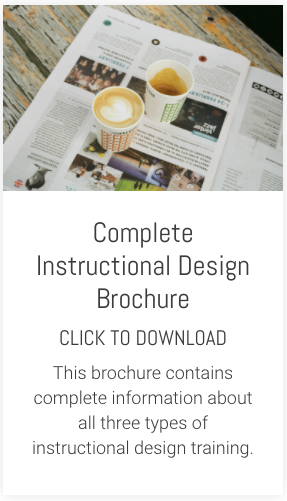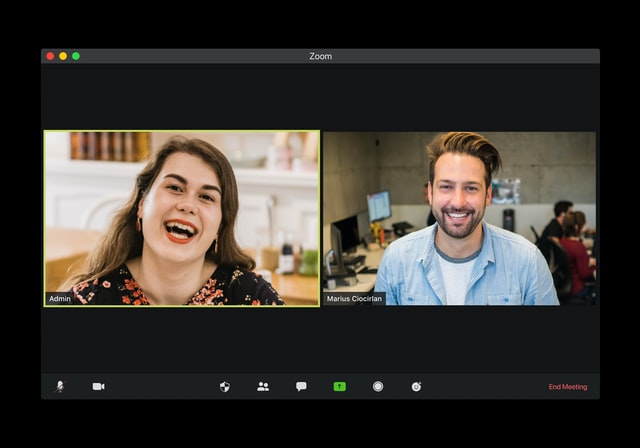We can all feel our pulse quicken, our emotions rise when we get chance to talk or write about a topic that engages us totally.
And we usually know lots about this topic. We can frequently talk about it for hours without getting bored. We can tell anyone willing to listen about its every last detail. In that sense, we are all subject matter experts (SMEs) in something.
As instructional designers, when we have a talkative SME in front of us and limited time to get the information we want, it's worth remembering how our own passion for a particular subject matter can allow us to get carried away.
So aside from being more empathetic to a talkative SME, is there anything else we can do to make our time with them more productive? I think there are four areas to consider when gathering content from SMEs. By the way, the greater the quantity of content you need to gather, the more you are likely to want to formalise the approaches below.
Ownership
Before any information gathering even happens, you need to take ownership of the process. This may involve becoming more assertive than normal: be quite specific about how you want the process to unfold, including the number of meetings you'll need, how long each meeting should be and how much time you'll need between meetings for reviewing and feedback.
Planning
Tempting as it might be to go into your early meetings knowing nothing, better to do research to familiarise yourself with the subject matter area. Spend time creating a basic project plan. Clearly define your and their roles in the whole process. Formally identify the risks of not getting the required information in a timely fashion and communicate this to the project sponsor.
Connecting
Your initial research can pay dividends once you start interacting with your SME. Exhibiting some knowledge of his/her topic can help build rapport and, more important, establish your credibility. Earn trust by emphasising the confidentiality of your information gathering sessions and the promise of a review of content before making it more widely available.
As the content gathering progresses, aim to establish points of shared interest both within the subject matter area and outside. Most people appreciate a little interest in their life outside work.
Focusing
Set an agenda in advance of the meeting clearly stating goals and expectations.
During your content gathering sessions, regularly paraphrase, clarify and summarise what you have covered; use closed questioning techniques if your SME has a tendency to go off on tangents. After the session, collate the content into a structured document you can share with your SME for review and feedback.
It's easy to dismiss some of the subject matter experts we deal with in our professional capacity as out of control windbags who want to bore us and our learners with every last detail of their knowledge.
That may be true. But let's not forget, given the right topic and the opportunity, many of us can happily do the same.
So with a bit empathy and some detailed preparation and work before, during and after your content gathering, the analysis phase of your project need not be an out of control nightmare.
If out of control SMEs are your current nightmare, check out our the Analysis and Planning modules in our instructional design programme for help on dealing with this problem.
And we usually know lots about this topic. We can frequently talk about it for hours without getting bored. We can tell anyone willing to listen about its every last detail. In that sense, we are all subject matter experts (SMEs) in something.
As instructional designers, when we have a talkative SME in front of us and limited time to get the information we want, it's worth remembering how our own passion for a particular subject matter can allow us to get carried away.
So aside from being more empathetic to a talkative SME, is there anything else we can do to make our time with them more productive? I think there are four areas to consider when gathering content from SMEs. By the way, the greater the quantity of content you need to gather, the more you are likely to want to formalise the approaches below.
Ownership
Before any information gathering even happens, you need to take ownership of the process. This may involve becoming more assertive than normal: be quite specific about how you want the process to unfold, including the number of meetings you'll need, how long each meeting should be and how much time you'll need between meetings for reviewing and feedback.
Planning
Tempting as it might be to go into your early meetings knowing nothing, better to do research to familiarise yourself with the subject matter area. Spend time creating a basic project plan. Clearly define your and their roles in the whole process. Formally identify the risks of not getting the required information in a timely fashion and communicate this to the project sponsor.
Connecting
Your initial research can pay dividends once you start interacting with your SME. Exhibiting some knowledge of his/her topic can help build rapport and, more important, establish your credibility. Earn trust by emphasising the confidentiality of your information gathering sessions and the promise of a review of content before making it more widely available.
As the content gathering progresses, aim to establish points of shared interest both within the subject matter area and outside. Most people appreciate a little interest in their life outside work.
Focusing
Set an agenda in advance of the meeting clearly stating goals and expectations.
During your content gathering sessions, regularly paraphrase, clarify and summarise what you have covered; use closed questioning techniques if your SME has a tendency to go off on tangents. After the session, collate the content into a structured document you can share with your SME for review and feedback.
It's easy to dismiss some of the subject matter experts we deal with in our professional capacity as out of control windbags who want to bore us and our learners with every last detail of their knowledge.
That may be true. But let's not forget, given the right topic and the opportunity, many of us can happily do the same.
So with a bit empathy and some detailed preparation and work before, during and after your content gathering, the analysis phase of your project need not be an out of control nightmare.
If out of control SMEs are your current nightmare, check out our the Analysis and Planning modules in our instructional design programme for help on dealing with this problem.











